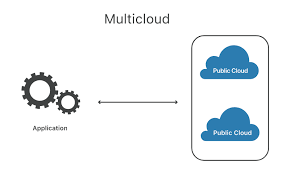Plenty to Consider with the Adoption of Multicloud
If you rely on the cloud for your organization’s IT infrastructure, you already know the value of having offsite servers for your infrastructure. Those ready to take the next leap are considering the adoption of multicloud for a variety of reasons.

Multicloud may appeal to organizations that want as many choices as possible to exploit the cloud. Using multiple cloud providers offers core advantages, which in the past worked as disadvantages. Today, organizations like yours can avoid vendor lock-in, they can pick and chose/mix or match strengths of cloud providers to their specific needs, they see more reliability and see less downtime by spreading their bets, and they can uphold stronger data governance.
The hybrid cloud like Microsoft Azure is often used synonymously with multicloud by many organizations. Multicloud is a subset of hybrid cloud. Companies are struggling to get the most value out of cloud in general, and multicloud may be the answer for some.
There are downsides to locking in to one cloud provider. Locked-in organizations are limited to the specific services that their vendor offers, even if their legacy systems have many moving parts that do not fit well with a single provider. The advantage, of course, is simplified integration, and you will lose some of the benefits of each respective suite’s product offering if they’re adopted separately.
If you do decide to adopt a multicloud strategy, keep in mind that it takes much more planning than a locked-in plan. It should include well thought out and actionable steps regarding business need for multicloud and details on how private clouds and public clouds can most efficiently be stitched together to create your singular network.
2W Tech is a Microsoft Gold Partner and has IT Consultants on staff that specialize in Microsoft solutions. Give us a call today to learn more about how Microsoft Azure cloud can improve your overall business efficiencies.